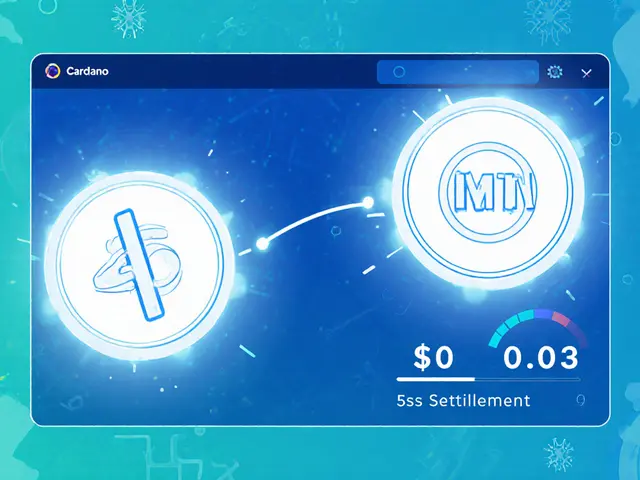UAE Crypto Regulation – What You Need to Know
When working with UAE crypto regulation, the set of rules governing digital assets, exchanges, and token offerings in the United Arab Emirates. Also known as Emirates crypto framework, it decides who can trade, how tokens are taxed, and which businesses get a license.
One of the biggest players behind the rules is Central Bank of the UAE, the authority that issues crypto‑exchange licenses and enforces AML standards. The bank works hand‑in‑hand with the Securities and Commodities Authority (SCA) to approve virtual‑asset service providers, known as VASP, companies that offer wallet, exchange, or custodial services for digital assets. Together they form the backbone of the licensing regime.
Key Pillars of the UAE Crypto Landscape
The framework rests on three pillars: licensing, compliance, and market promotion. Licensing covers the crypto exchange permit that every platform must secure before serving UAE residents. Compliance demands strict anti‑money‑laundering (AML) checks, know‑your‑customer (KYC) procedures, and regular reporting to the Central Bank. Market promotion is driven by tax incentives and the government’s push to attract blockchain startups to free‑zone hubs like the Dubai International Financial Centre (DIFC) and Abu Dhabi Global Market (ADGM).
External influences matter too. The European MiCA, Markets in Crypto‑Assets Regulation that sets harmonised standards for token trading across the EU has nudged the UAE to tighten its own rules, especially around stablecoins and security tokens. By aligning with MiCA, the Emirates hope to ease cross‑border transactions and avoid regulatory arbitrage.
Security token offerings (STOs) are another hot topic. The SCA treats an security token offering, a fundraising method where tokens represent equity, debt, or other financial rights much like traditional securities. This means issuers must publish a prospectus, undergo a fit‑and‑proper test, and file with the regulator. For investors, the benefit is clear: STOs enjoy the same investor protections as listed stocks.
How does this affect everyday traders? First, any exchange you use in the UAE must display a valid VASP license on its website. Second, you’ll be asked for detailed ID verification, source‑of‑funds documentation, and ongoing transaction monitoring. Third, profits from crypto trades are subject to the 9% corporate tax if you’re operating through a UAE‑registered entity, while individual holders usually face no personal income tax on capital gains.
For startups, the licensing path is relatively fast compared to many regions. Companies can apply through the Dubai Financial Services Authority (DFSA) or the ADGM Financial Services Regulatory Authority, often receiving a decision within 30‑45 days. The key requirements are a solid AML policy, proof of sufficient capital (usually USD 500,000), and a clear business plan that outlines how the platform will protect user funds.
Risk management is baked into the framework. Exchanges must keep at least 100% of client deposits in a segregated account, and the Central Bank can conduct surprise audits. If an operator fails to meet the standards, the license can be suspended or revoked, and fines can reach up to AED 5 million.
Because the UAE is a hub for expatriates, the regulation also addresses cross‑border issues. Foreign crypto firms looking to serve UAE residents must appoint a local representative, obtain a VASP license, and adhere to the same AML/KYC rules as domestic players. This creates a level playing field and reduces the chance of regulatory evasion.
In practice, the rules have spurred a wave of activity. Over 60 crypto exchanges, custodians, and blockchain startups received licenses between 2022 and 2024, making the Emirates one of the fastest‑growing crypto ecosystems in the world. The market now hosts over $30 billion in digital‑asset trade volume, driven by both retail investors and institutional players.
Looking ahead, the UAE plans to introduce a digital‑asset tax framework that will differentiate between speculative trading, mining income, and long‑term holdings. Draft proposals suggest a tiered tax rate starting at 0% for holdings longer than one year, encouraging long‑term investment. The Central Bank is also exploring a national stablecoin backed by the dirham, which would further cement the UAE’s role as a regional crypto leader.
All these pieces—licensing, compliance, MiCA alignment, STO rules, and upcoming tax tweaks—form a cohesive ecosystem that balances innovation with investor protection. Whether you’re a trader, a developer, or a regulator, understanding each component helps you navigate the market with confidence.
Below you’ll find a carefully curated list of articles that dive deeper into specific aspects of the UAE crypto regulation, from licensing guides to tax breakdowns and market analysis. Use them to sharpen your strategy, stay compliant, and make the most of the opportunities the Emirates market offers.
A 2025 guide covering VARA crypto licensing in Dubai, licence types, costs, application steps, and how it compares to DFSA and FSRA.
Categories
Archives
Recent-posts
HeroesTD (HTD) Airdrop 2025: What We Know About the Coinmarketcap Event and Token Details
Dec, 11 2025



 Finance
Finance




